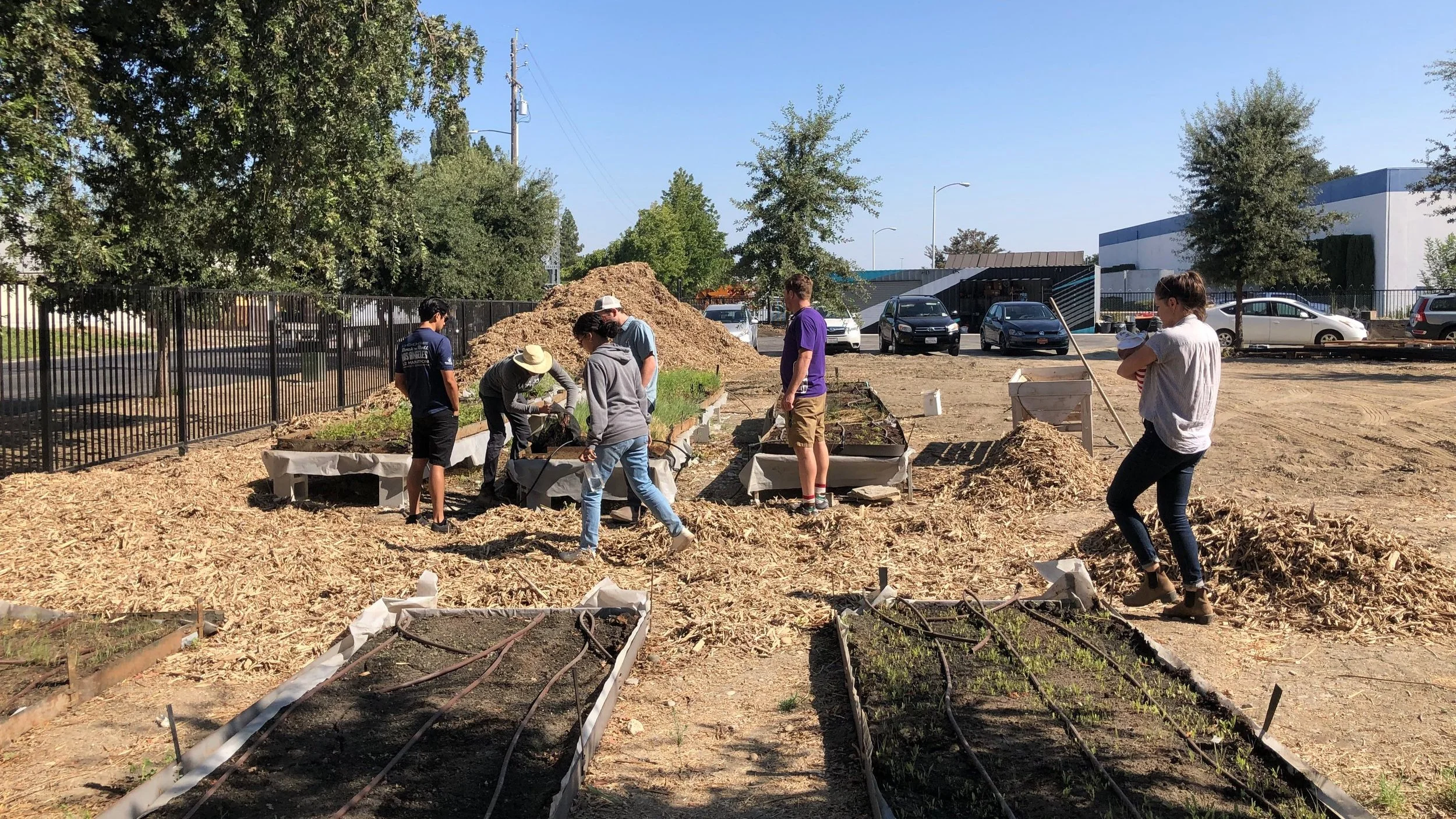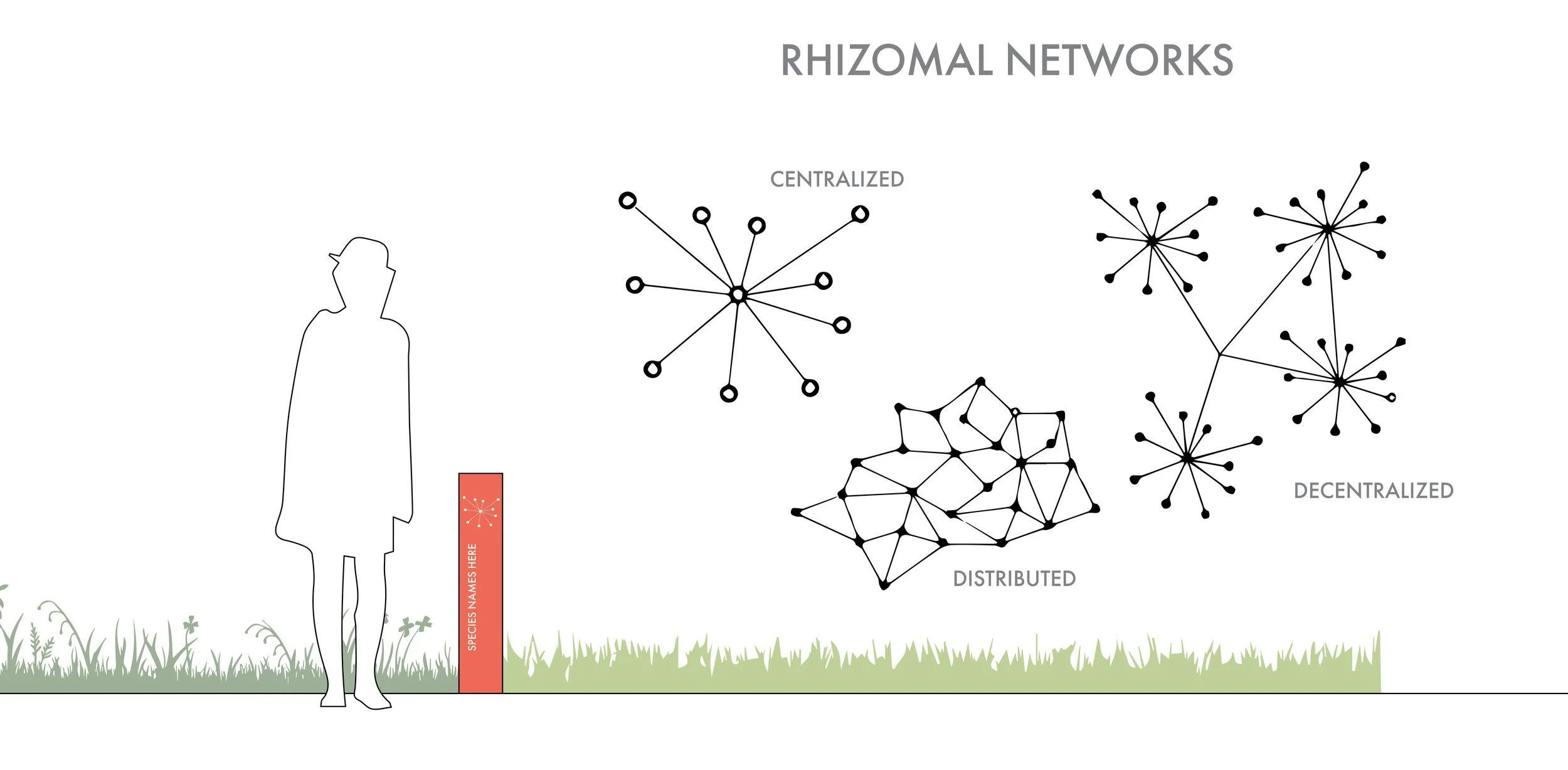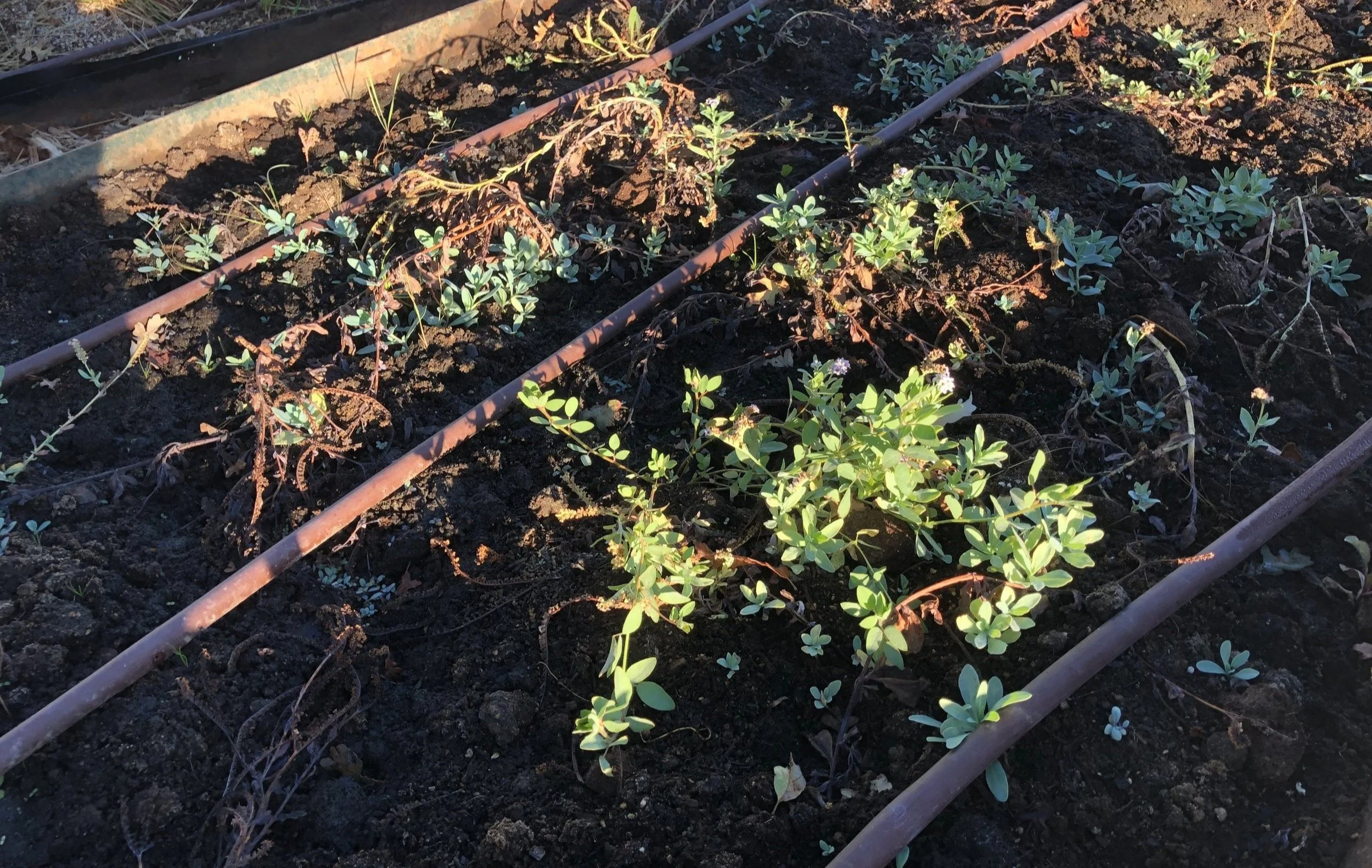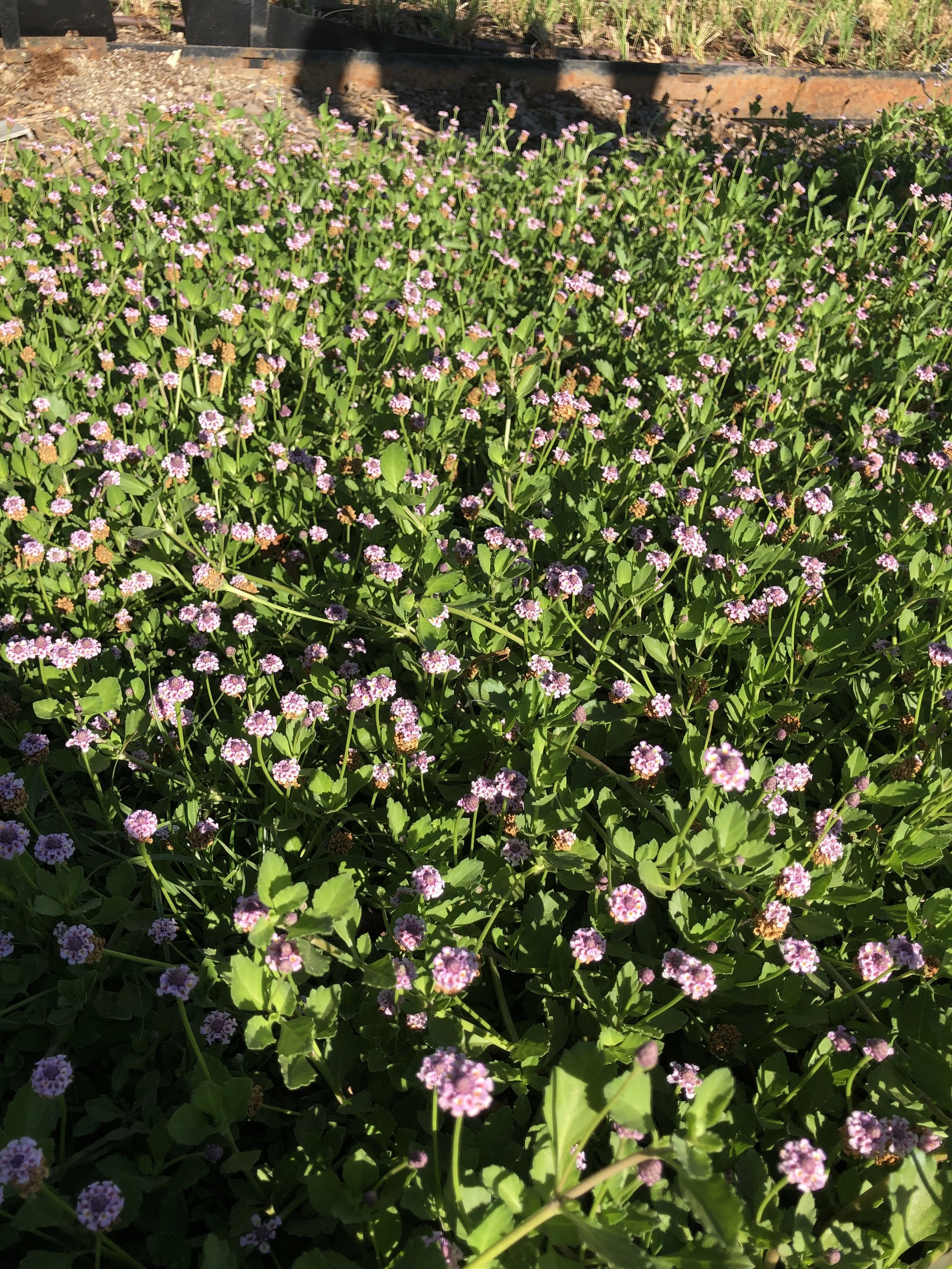RHIZO-MATS
RESTORATION
SACRAMENTO REGION, CA | 2021 - ongoing
PARTNER: BRIAN KEELEY
Combining his expertise in plant propagation and restoration ecology, Ecologist and Miridae’s Nursery and Facilities Manager, Brian Keeley, is developing a method for producing “carpets” of plant material using either single or mixed native plant species. This enables plants and their roots to develop under controlled conditions until they are ready to be rolled up and transported to the desired location, where the site has been prepared with a deep mulching technique that improves the soil, reduces the need for weed management, and eliminates the need for irrigation. The carpet format works especially well with rhizomatous plant species that spread via their roots, but non-rhizomatous species can also be used.
The goal for these “Rhizo-mats” is to improve the quality and increase the scale of restoration success. A series of preliminary tests—including a trailside buffer for the City of Davis and a central driveway strip—have shown the techniques have merit, and further testing for larger-scale applications is underway. Some of these future applications might include roadsides, sidewalk “hell” strips, post-fire recovery sites, along fencerows and agricultural hedgerows, and commercial landscapes.
If you are interested in bringing Rhizo-mats to your residential or commercial landscape or restoration project, let us know!
HIGHLIGHTED PLANTS
Achillea millefolium (Yarrow)
Distichlis spicata (Saltgrass)
Elymus glaucus (Blue Wildrye)
Euthamia occidentalis (Western Goldenrod)
Heliotropium curassavicum (Seaside Heliotrope)
Phyla nodiflora (Lippia)
Symphyotrichum chilense (California Aster)
Rhizomatous carpet concept for a trailside project in the City of Davis
Prepping planting beds and experimenting with different amendments
Rolling the mats for transport
Trailside buffer in Davis where the rhizo-mats have been installed
A residential driveway installation
Images by Miridae















